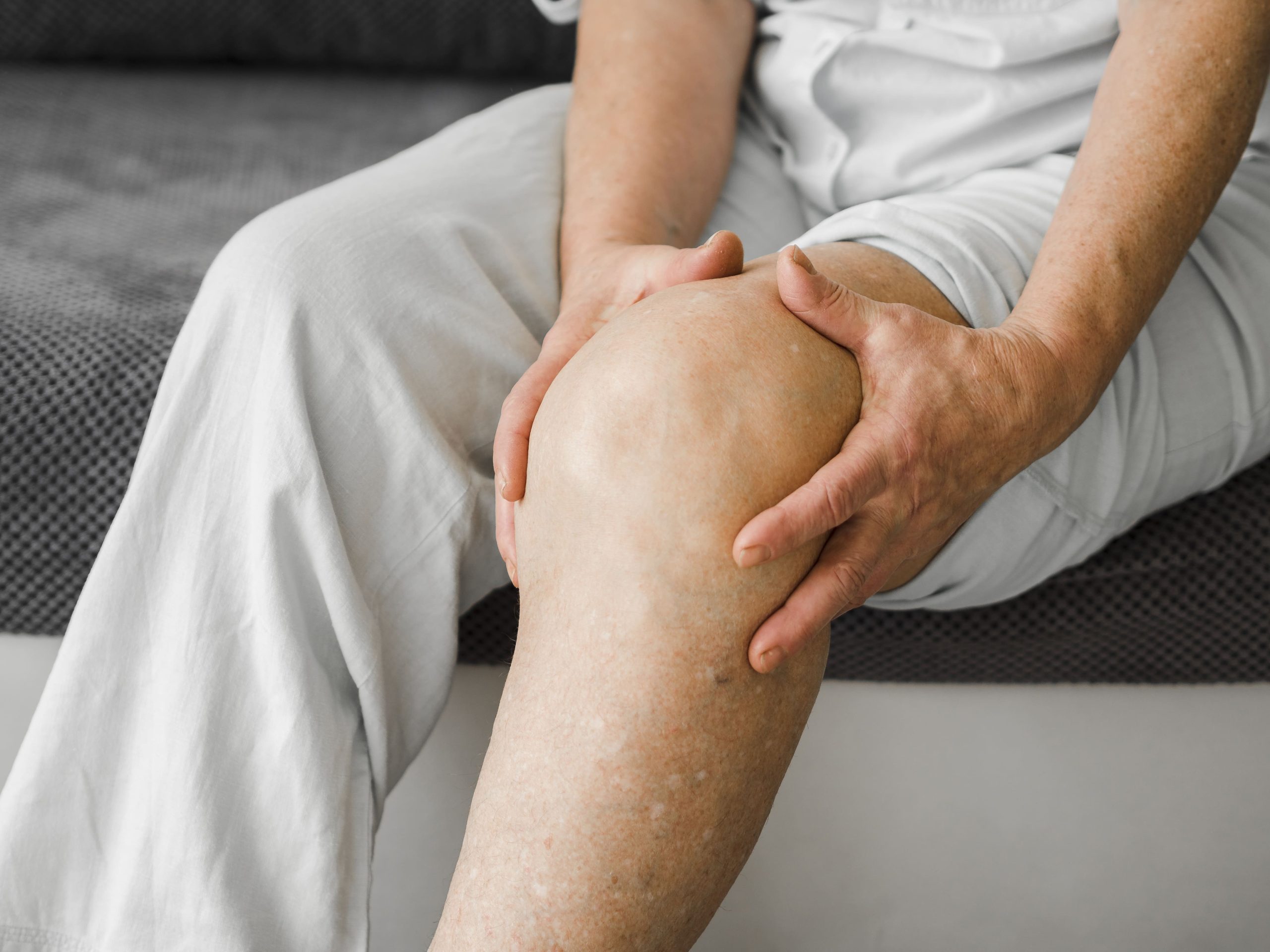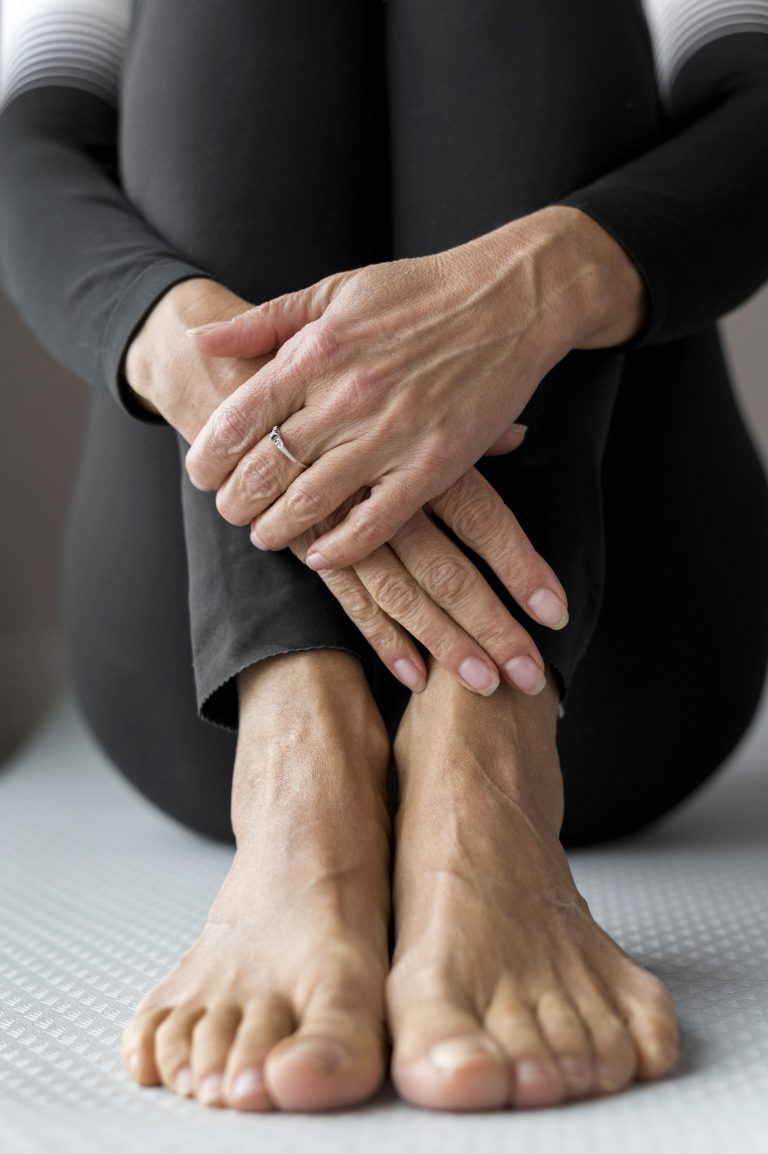How Can Psoriatic Arthritis Affect Your Feet?
If you have psoriatic arthritis, it’s essential to understand how this condition can affect your feet. Having a good grasp of the potential impacts and treatments can play an important role in managing your disease and keeping yourself safe from further damage.
In this blog post, we’re exploring exactly that – how psoriatic arthritis can manifest itself in your feet and what preventive steps you should be taking to keep them healthy and functioning properly. So read on if you want to learn more about this common form of arthritis!
What Is Psoriatic Arthritis?
Psoriatic arthritis is a chronic autoimmune condition that combines the symptoms of both arthritis and psoriasis, two conditions that may seem unrelated at first glance but are closely interconnected.
It occurs when the body’s immune system starts attacking healthy tissues and joints, causing inflammation and pain. Patients with psoriatic arthritis not only experience fatigue and swelling in their joints but also have patches of red, scaly skin, which are tell-tale signs of psoriasis.
Although it typically affects people who already have psoriasis, sometimes joint problems can manifest before skin lesions do. Timely diagnosis and treatment are crucial to prevent the progression and to manage the often debilitating symptoms effectively.
It is essential to educate oneself on this condition and work closely with healthcare professionals to design a tailored plan that allows a patient to lead an active and fulfilling life.
Symptoms Of Psoriatic Arthritis
Grappling with psoriatic arthritis can be an uphill battle, as this condition often remains undiagnosed due to its vast array of symptoms, which can easily be mistaken for other ailments.
The persistent pain, swelling, and stiffness associated with this autoimmune disease adversely impact the joints, causing the dreaded chronic lower back, neck, and knee agony.
Additionally, individuals with psoriatic arthritis may experience fatigue, which makes it increasingly difficult for them to remain physically active. To complicate matters, fingers and toes can also become swollen and may appear to have a sausage-like appearance, a condition known as dactylitis.
Another telltale sign is the presence of psoriasis, which manifests as scaly, red patches on the skin. Those encountering these symptoms are urged to seek medical advice and potential treatment, to help manage the impact of this condition on their daily lives.
How Does Psoriatic Arthritis Affect Your Feet?
Psoriatic arthritis is a chronic autoimmune inflammatory disease that can significantly impact the quality of life of those affected by it. One key area of the body that is particularly susceptible to its effects is the feet.
This condition targets the joints, tendons, and ligaments located in the feet, leading to pain, stiffness, and swelling. When it comes to the feet’s functionality, psoriatic arthritis is notorious for causing difficulty in walking or performing daily tasks that require mobility.
Foot pain resulting from swollen and inflamed joints, such as the toes or the back of the heel (also known as the Achilles tendon), could be debilitating for some individuals. Furthermore, changes in the shape of the foot due to joint destruction can lead to deformities and may necessitate special footwear for extra support and comfort.
In order to manage these challenges and maintain an active lifestyle, seeking prompt diagnosis and effective treatments from healthcare professionals is crucial for individuals suffering from psoriatic arthritis affecting their feet.
Why You Shouldn’t Ignore Psoriatic Arthritis?
Living with psoriasis is already a challenging experience but dismissing the possibility of psoriatic arthritis can lead to dire consequences.
It is vital to pay attention to the signs and symptoms of this type of arthritis, as early diagnosis and treatment are essential for preventing irreparable damage to your joints. Psoriatic arthritis combines the typical dry, scaly patches of psoriasis with joint pain, swelling, and stiffness.
If left unaddressed, this condition can progressively worsen, leading to decreased mobility and chronic pain that may impact your quality of life significantly. In addition, untreated psoriatic arthritis can also escalate the chances of developing other serious health complications, such as cardiovascular issues and metabolic syndrome.
Common Treatment For Psoriatic Arthritis
One widely used approach is the administration of nonsteroidal anti-inflammatory drugs or NSAIDs, which provide significant relief from pain and inflammation. If you’re seeking a more targeted approach, disease-modifying antirheumatic drugs (DMARDs) actively slow down the progression of psoriatic arthritis and safeguard your joints from long-term damage.
The innovative realm of biological therapy has also brought forth cutting-edge medications such as TNF-alpha inhibitors and interleukin-17 inhibitors that are designed to suppress the overactive immune system responses found in psoriasis and psoriatic arthritis.
Lastly, maintaining a balanced lifestyle with regular exercise, stress management, and a nutritious diet is crucial in bolstering your resistance to this condition. With a comprehensive treatment plan tailored to your needs, you can effectively manage psoriatic arthritis and continue living life to the fullest.
If psoriatic arthritis is affecting your feet and lifestyle, contact us now and we will help you further.



